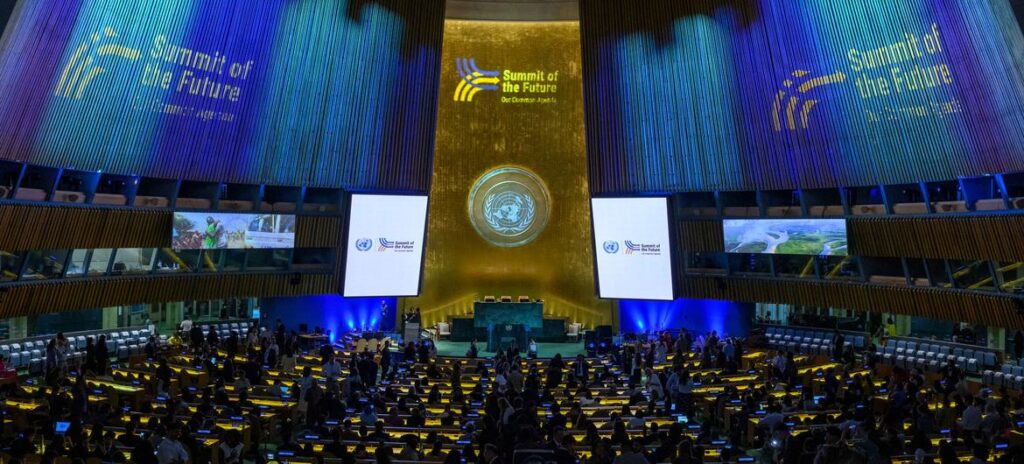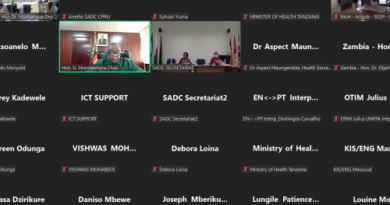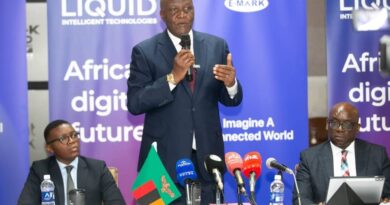UN Adopts Groundbreaking “Pact for the Future” to Transform Global Governance
World leaders have adopted the Pact for the Future, a comprehensive agreement designed to reshape global governance and address pressing challenges facing humanity. This landmark pact, which includes a Global Digital Compact and a Declaration on Future Generations, is the result of an inclusive, years-long process aimed at modernizing international cooperation.
The Pact represents the most expansive international agreement in decades, covering new areas of concern while addressing long-standing issues that have historically stymied consensus. “We cannot create a future fit for our grandchildren with a system built by our grandparents,” said UN Secretary-General António Guterres during the Summit of the Future.
The Pact underscores countries’ commitment to the United Nations, international law, and the necessity of a responsive global governance structure. It envisions a system that is more representative of today’s diverse world, drawing on the energy and expertise of governments, civil society, and key partners.
Guterres emphasized the potential of the Pact, stating that it opens doors to new opportunities and untapped possibilities. The President of the General Assembly added that the agreement lays the foundations for a sustainable, just, and peaceful global order for all nations.
One of the most notable features is the progressive commitment to reform the UN Security Council, focusing on improving its effectiveness and representativeness. This includes addressing the historical under-representation of Africa. Additionally, the Pact reaffirms a multilateral commitment to nuclear disarmament and strengthens international frameworks governing outer space, emphasizing the need to prevent an arms race and ensure safe exploration for all nations.
Aiming to accelerate the implementation of the Sustainable Development Goals (SDGs), the Pact introduces a detailed agreement on reforming international financial architecture to better serve developing countries. This includes enhancing their decision-making power in financial institutions and mobilizing more resources to meet their development needs.
The agreement also highlights the urgency of addressing climate change, aiming to limit global temperature rise to 1.5 °C and transition away from fossil fuels to achieve net-zero emissions by 2050.
The Global Digital Compact, a key component of the Pact, sets forth the first comprehensive framework for digital cooperation and AI governance. Leaders have committed to ensuring internet access for all, anchoring digital cooperation in human rights, and making online spaces safe, particularly for children. The Compact also establishes a roadmap for governing artificial intelligence and requires countries to take concrete actions on data governance by 2030.
The Declaration on Future Generations marks a significant step in incorporating the voices of younger populations in decision-making processes. It includes provisions for creating a possible envoy for future generations and emphasizes meaningful opportunities for youth engagement on global issues.
The Pact strengthens commitments to human rights and gender equality, highlighting the need to protect human rights defenders and engage a diverse range of stakeholders in governance, including local governments and the private sector.
The Summit that culminated in the Pact saw the participation of over 4,000 individuals, including heads of state, civil society representatives, and non-governmental organizations. Preceding the Summit, the Action Days from 20-21 September engaged more than 7,000 participants from various societal segments, resulting in pledges exceeding USD 1.05 billion to promote digital inclusion.
The inclusive nature of the Summit process is evident, as millions of voices and thousands of stakeholders contributed to the dialogue, enriching the Pact’s commitments and ensuring a broad-based approach to the challenges ahead.
The adoption of the Pact for the Future marks a pivotal moment in international relations, reflecting a collective aspiration for a more just and equitable global order. As countries move forward with these commitments, the world watches closely, hopeful that this agreement will usher in a new era of cooperation and progress for all.



